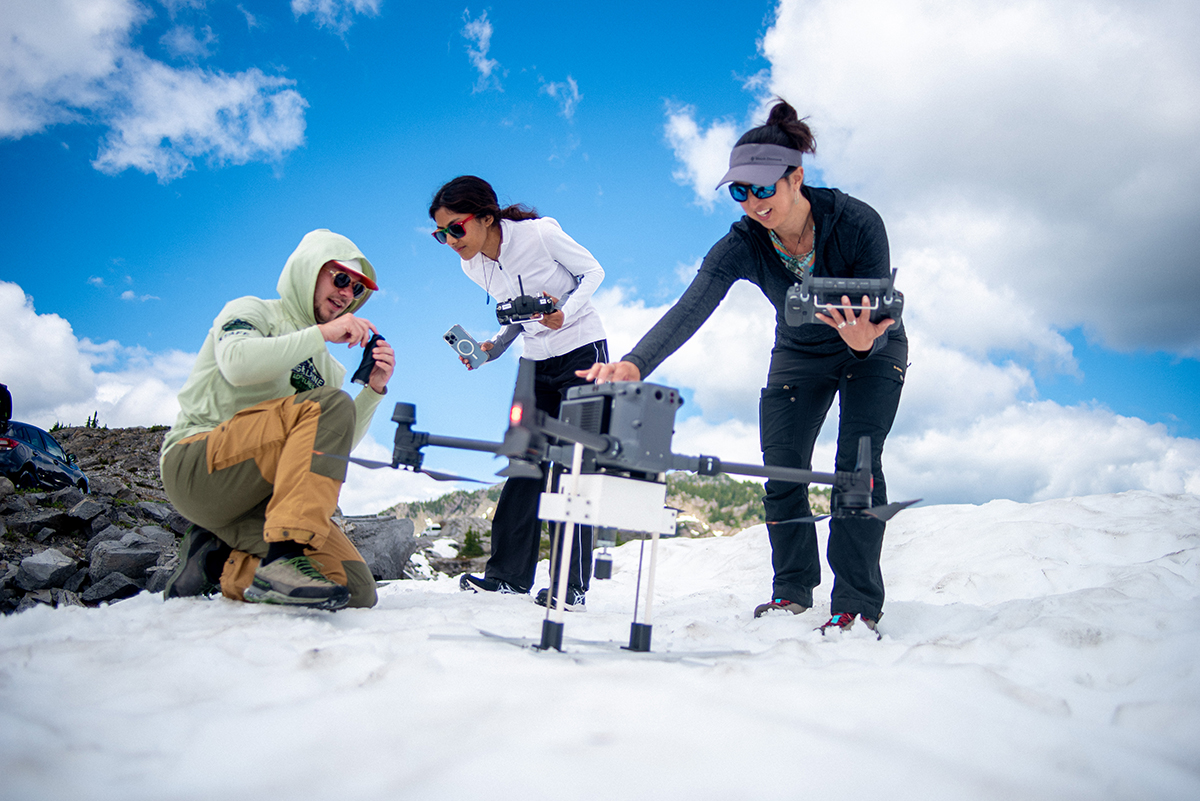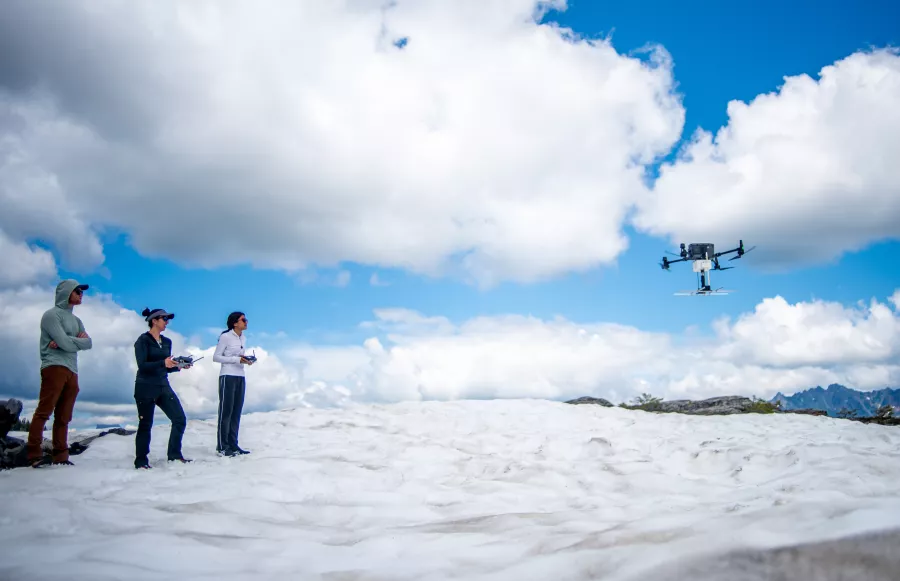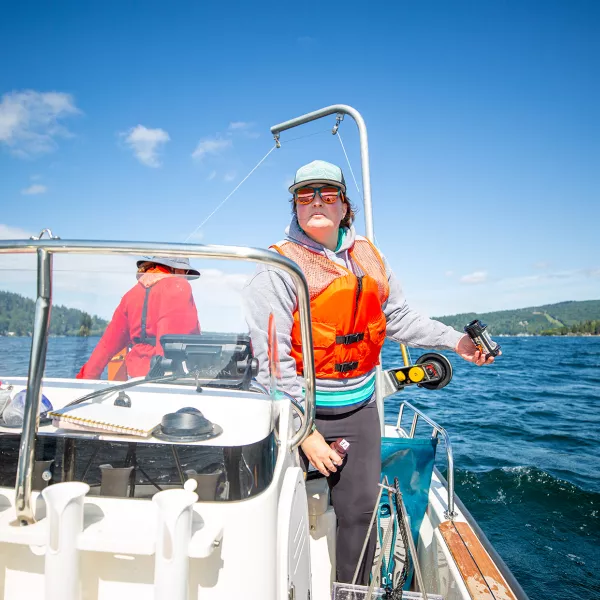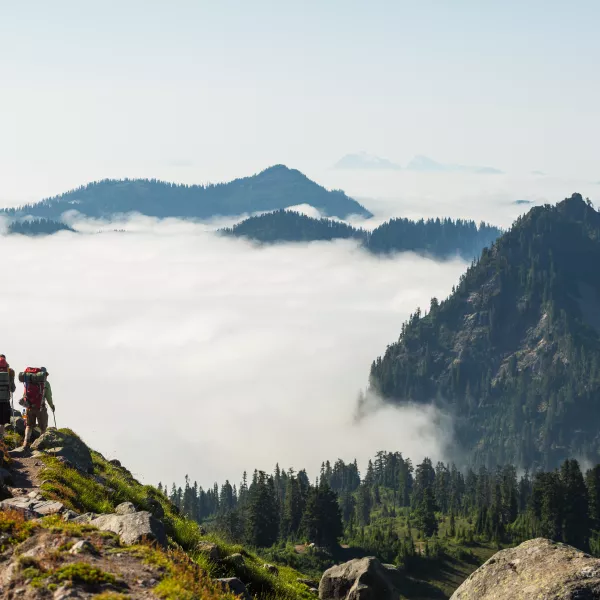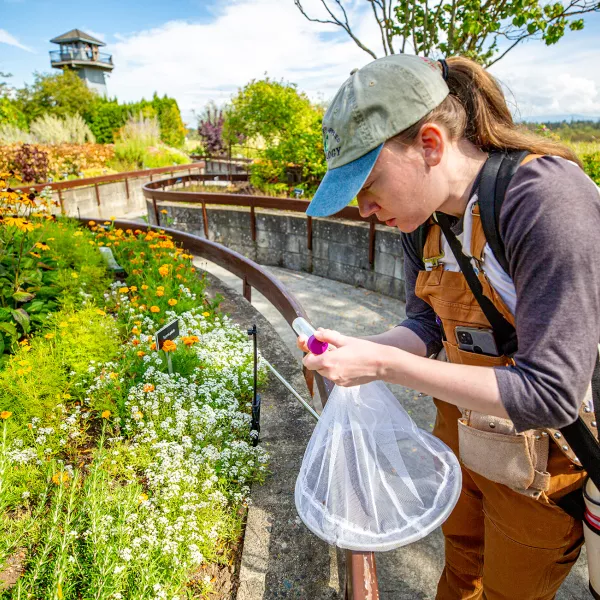Alia Khan, an associate professor of Environmental Science in Western’s College of the Environment, collects snow and ice samples from the world’s highest and coldest places—places like the Himalayas, the Andes and Antarctic—to examine snow’s light-absorbing particles, such as soot, dust and algae. These particles affect the snow’s albedo, or its reflectiveness; the lower the albedo, the quicker snow and ice will melt.
Now, Khan is using drones to study remote areas that are almost impossible to reach on foot. Graduate students she advises designed a robotic sampling device so the drones can collect snow and ice in areas humans can’t reach. Thanks to the drones, Khan’s research group will have even more samples for further study.
Khan’s work has received funding from the National Science Foundation, NASA and other agencies.
